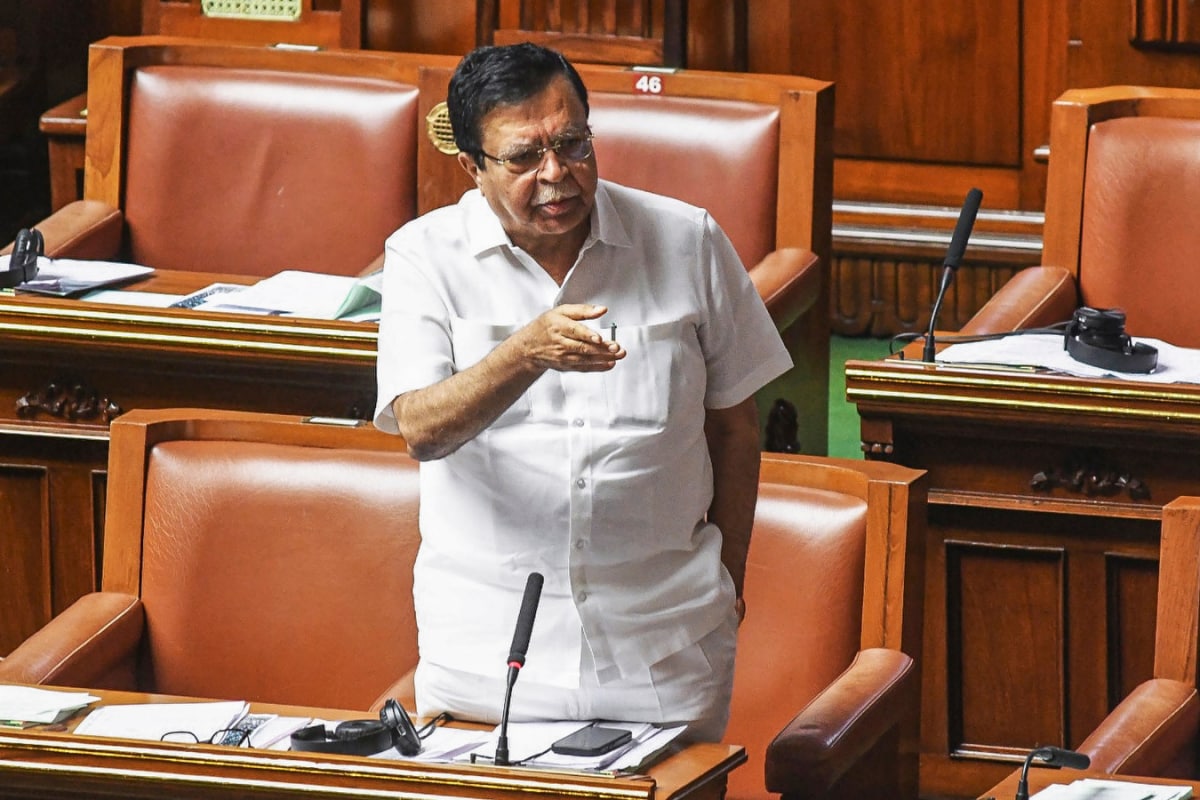

The dismissal of KN Rajanna, Karnataka's Cooperation Minister, has ignited a political firestorm, exposing deep divisions within the state's Congress party and drawing sharp criticism from the opposition BJP. Rajanna's removal, allegedly at the behest of the Congress high command, stems from his public questioning of Rahul Gandhi's "vote chori" (vote theft) allegations regarding the 2024 Lok Sabha elections.
Rajanna's comments, made just days after Rahul Gandhi's rally in Bengaluru, directly contradicted the party's narrative of widespread electoral fraud. He stated that irregularities in voter lists, specifically in the Mahadevapura constituency, occurred "right in front of our eyes" during the Congress's own tenure, implying a failure of oversight. He further questioned why the party remained silent during the draft stage of voter list revisions and accused the Election Commission of altering the list in a way that favored the Prime Minister. These remarks were perceived as undermining Rahul Gandhi's claims and embarrassing the party.
The Congress high command swiftly responded, reportedly instructing Chief Minister Siddaramaiah to take action against Rajanna. Subsequently, Rajanna was asked to resign, and upon his refusal, a letter was sent to the Governor recommending his dismissal. This move has been interpreted by some as a sign of intolerance towards dissent within the Congress party.
Rajanna himself has alleged a "conspiracy" behind his removal, hinting at unseen forces working against him. He stated his intention to travel to Delhi to meet with Rahul Gandhi, party president Mallikarjun Kharge, and AICC general secretary K.C. Venugopal to address any "misunderstanding". Meanwhile, protests have erupted across Karnataka by Rajanna's supporters, with one person even attempting self-immolation, highlighting the strong emotions surrounding the issue.
The BJP has seized upon the opportunity to attack the Congress, calling Rajanna's dismissal "authoritarian" and demanding an explanation from the government. During the Karnataka Assembly session, BJP members disrupted proceedings, arguing that Rajanna was removed for speaking the truth about the "vote chori" allegations. They questioned why the government was silencing dissenting voices and accused the Congress of sacrificing Rajanna, who belongs to a Scheduled Tribe community. Some BJP leaders have speculated that Siddaramaiah himself may be the next target, as Rajanna was considered a staunch loyalist.
Within the Congress, Rajanna's dismissal has further exposed existing fault lines. The incident underscores the ongoing power struggles and leadership ambitions within the party, particularly between Chief Minister Siddaramaiah and Deputy Chief Minister D.K. Shivakumar. Some reports suggest that Rajanna's removal is linked to his perceived closeness to Siddaramaiah, with the high command seeking to weaken the Chief Minister's influence.
This is not the first time Rajanna has stirred controversy. In the past, he has made allegations of a "honey trap" attempt by party members and hinted at a "September Revolution," fueling speculation of internal upheaval. These incidents suggest a pattern of independent behavior and a willingness to challenge the party line, which may have ultimately contributed to his downfall.
The political ramifications of Rajanna's dismissal are far-reaching. It not only deepens the rifts within the Karnataka Congress but also provides ammunition for the BJP to attack the ruling government. The incident raises questions about internal democracy within the Congress and the extent to which dissenting voices will be tolerated. As the political drama unfolds, it remains to be seen how the Congress party will manage the fallout and maintain stability in the lead-up to future elections.